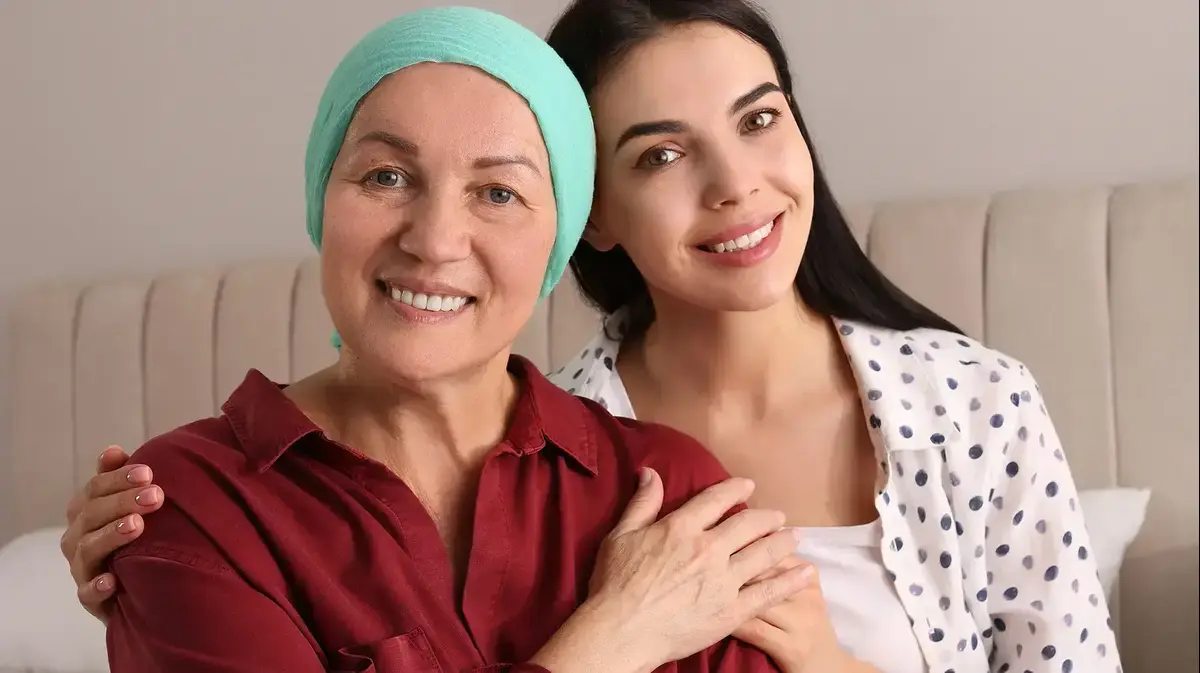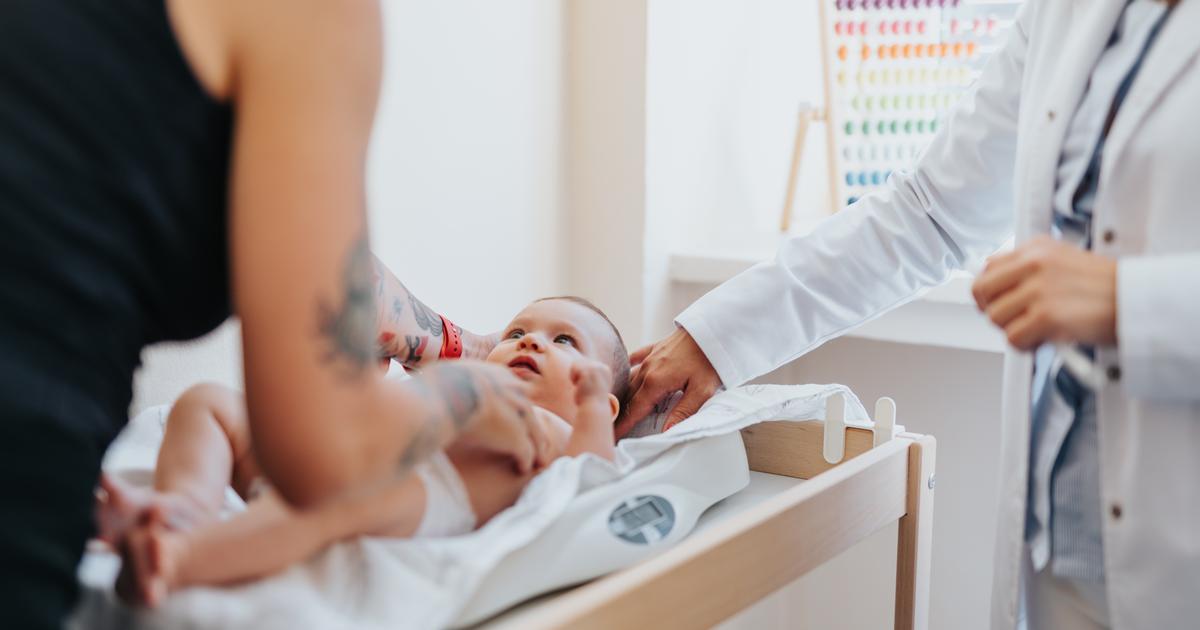health
The mutations in the BRCA gene that increase the risk of breast cancer - what to know
Interview with Dr. Rinat Bernstein-Molcho, Specialist in Oncology and Medical Genetics, Director of the Oncogenetics Unit and Senior Physician in the Breast Unit of the Oncology Division at Sheba Tel Hashomer
Tags
breast cancer
Pfizer
Harela Halevi, in collaboration with Pfizer
Wednesday, October 20, 2021, 12:00 Updated: 12:08
Share on Facebook
Share on WhatsApp
Share on general
Share on general
Share on Twitter
Share on Email
As of the end of 2020 breast cancer is the most common cancer worldwide. One approach to preventing breast cancer mortality is early detection of the disease, which increases the chances of recovery.
Apart from family history, sex (woman) and age, one of the risk factors for breast cancer is inherited genetic mutations, for example in the BRCA1 or BRCA2 genes. Among 1 in 40 Ashkenazi Jews, there is a mutation in the BRCA1 or BRCA2 gene, a figure that is several times higher than in other communities in Israel, where the prevalence is much lower. Therefore, women of Ashkenazi descent have an increased risk of developing breast or ovarian cancer due to BRCA1 / 2 mutations.
In Israel, healthy women of Ashkenazi descent, with and without a family history of cancer, are currently eligible for a genetic screening test to detect common mutations in the BRCA1 / 2 genes. The test is performed free of charge and is usually performed using a simple blood test within the HMOs.
To better understand gene mutation -BRCA1 / 2 and what are the consequences of the mutation in HIV, I spoke with Dr. Rinat Bernstein-Molcho, a specialist in oncology and medical genetics, Director of the Unit Laonkogntikh and Senior Physician unit of Breast Oncology at Sheba Medical Center in Tel Hashomer.
What is important to know about Hereditary breast cancer
As of the end of 2020, breast cancer is the most common cancer worldwide (Photo: PR)
What is a BRCA gene and what happens when there is a mutation in the gene?
“Every cell in our body contains DNA, a unique genetic code that we inherited from our parents. The genetic code is made up of different genes that make different proteins. These proteins are responsible for the function and activity of every tissue in our body. There are genes that are responsible for eye color, and there are those that are responsible for the height we reach, the level of intelligence or our tendency to get certain diseases. Sometimes a gene malfunction or mutation occurs - when mutations accumulate in cells, they can divide uncontrollably and form a cancerous growth. Mutations can be caused by environmental factors or passed on to us inherited from one or both parents.
The BRCA1 gene and the BRCA2 gene are two tens of thousands of genes we have in the body - these genes are responsible for repairing DNA damage during cell division. Mutations in the BRCA gene prevent it from functioning properly, which increases the risk of various cancers. "Breast cancer in men and pancreatic cancer. A mutation in BRCA is a mutation that we inherit from one of the parents."
What is the benefit of a BRCA genetic screening test?
"This test can identify whether a woman is at increased risk of developing breast and / or ovarian cancer, compared to a non-carrier woman. Early detection can affect possible oncological treatments and save lives. Around the world and in Israel in about 50% of women who have breast cancer "When they fell ill, no family history was found suggesting pregnancy. If these women had been tested, they would have known they were pregnant, and they could have followed up properly and discovered the disease at an earlier stage."
If every woman of Ashkenazi descent is eligible under the basket to perform a screening test for a mutation in BRCA, whether or not she or a first-degree relative had breast cancer, does that mean that the genetic counseling phase can be missed?
"True. These women can contact the HMO and ask for the test, which is performed without genetic counseling. However, when a mutation is found in one of the BRCA1 / 2 genes in the test, the woman is invited for counseling to explain the meaning of the findings and give appropriate follow-up recommendations. Even when there are no mutations in the test, in cases where there is a family history of cancer, it is recommended to seek genetic counseling. And / or adjust follow-up according to a family story. "
Will any BRCA carrier necessarily develop breast cancer?
"No. Although mutations in BRCA1 or BRCA2 increase the risk, not every woman who inherits a mutation in these genes will develop cancer. Carriage is not a disease sentence, but a carrier woman is more likely to get cancer than a woman who is not a carrier."
So you say that "Knowledge is power "is not just a cliché
"Yes. Carrier information allows you to adjust the frequency and type of follow-up. If a tumor does develop, tests help detect it at an earlier stage."
"Knowledge is power" is really not just a cliché (Photo: PR)
What increases the chance of a mutant carrier in the BRCA gene developing breast cancer?
"We do not know in advance whether a specific carrier has cancer, and if so, when or what type of cancer it is, however, we know that as with any other type of breast cancer there are risk factors for developing the disease. For example, lifestyle, dense structure of the breast ", And gynecological and obstetric factors, such as the early age of first menstruation (under the age of 12), first birth in old age, low number of births, breastfeeding, etc. Any risk factor can to some extent affect the risk of developing breast cancer."
In what way does a positive outcome for BRCA mutations change the medical follow-up?
"In non-pregnant women who do not have a family history of breast cancer, it is recommended that they be monitored by a breast surgeon and have a mammogram every two years from the age of 50. When carrying a mutation in the BRCA1 / 2 genes is known, we recommend monitoring at an earlier age and more frequently .
What about women who have already developed breast cancer - do carriers have anything to do with the treatment they will receive?
The type of treatment a woman receives depends on the stage of the disease and the biological characteristics. A mutation in BRCA can be another consideration in adjusting treatment. In early disease we can give chemotherapy, perform radiation or give preventative surgery (mastectomy, or bilateral mastectomy) to reduce the "The risk of developing another cancer. In some cases of metastatic breast cancer with a mutation in BRCA, we can offer some women the carriers new drugs that are considered more effective and with higher tolerance."
What would you recommend to women who are undecided whether to perform a mutation test for BRCA1 / 2?
"If a woman is undecided or apprehensive, it is advisable to ask the family doctor for a referral for genetic counseling (you can also prescribe in hospitals with Form 17 or within the HMOs) to get detailed information and explanation about the meaning of carriers, benefits and disadvantages of the test and recommended follow-up. "Even if a genetic test is performed and it is normal, it is recommended that women with a family history of cancer be monitored more frequently and from a younger age than usual in the general population."
"The test is recommended for women over the age of 25, but in the end, the decision whether to do the test depends on each woman's personal desire, whether she wants to get the information and be in control," Dr. Bernstein concludes.
In Israel, there are associations and groups that accompany women who have been diagnosed with or recovered from breast cancer, or support groups for women who have had metastatic breast cancer.
In addition to the support they provide, some of the associations connect patients with women who have recovered from breast cancer.
Although such support does not completely eliminate loneliness, support from women who have been through similar things, "who have been there," can help patients know and feel that they are not alone, whether they have a supportive environment at home or not.
Women who are interested in consulting and getting more information can contact them.
For information on breast cancer can also be found on the website: www.pfizer.co.il/meandmbc The
site contains a lot of information on medical and non-medical issues, which can help deal with a variety of questions.
For further questions, please contact the attending physician.
Public service.
Served under the auspices of Pfizer.
As of Date: September 2021
PP-TAL-ISR-0040
What is important to know about hereditary breast cancer >>
Share on Facebook
Share on WhatsApp
Share on general
Share on general
Share on Twitter
Share on Email



/cloudfront-eu-central-1.images.arcpublishing.com/prisa/DCLIXOYIQBESZAIQWZIFE7WEUQ.JPG)





